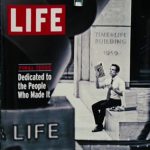He felt that he was prying, and as though he was being uselessly urged on by some violent emotion of curiosity – not greed, curiosity, more fundamental even than sex, the desire for knowledge.
Possession, A S Byatt (1990)
[ Part 5 of 5: 1) The intimacy of the written word, 2) Structure, 3) Archetypes and aesthetics, 4) Women 5) Possession, the relations between minds]
I have read many a How to write a bestselling... novel/book/etc. I love them inexplicably, though, I have never written (or published) a novel/book/etc., bestselling or otherwise.
In all of the how to books I have read, they identify the bestselling pattern, after the fact, after the book has been hailed as bestselling, which I think is cheating a little, especially as the author who identifies the bestselling pattern is never the one who has written the bestselling book under analysis. Personally, I would love to have someone write a how to, then wait a while, and then afterwards, publish a best seller. How cool would that be?
We all want to be seen, heard, and matter
As usual, I was wondering why the need to write (or publish) a best selling novel is so compelling and, why how to write a bestselling… books are so successful. Finally, the reason I came to is the one I always use for everything, probably now and forever, on this blog, in conversation, on social media, and it’s what I murmur during my sleep which is: We all want to be seen and heard, we all want to matter. So, if we write (or publish) a bestselling novel, then of course, people will take notice of us, we will be seen and heard, and we feel like we matter.
The closest thing that I have read to a how to by a best selling novelist is A S Byatt’s Possession and all the wonderful things she said about writing it during interview. Byatt said that she set out to write a bestselling novel. And, I believe her. It is very different from her other work. (Just an aside, if you are thinking of Stephen King On Writing, as good as it is, a) it is part memoir, b) he wrote it long after he had written many a bestselling book and, c) I’m psychic.)
I first read Possession in the midst of completing my PhD in AI/HCI for Structural Engineering and it was the only novel I have ever read before or since, that made me wish I’d stuck with my original plan of doing a degree in English Lit (I have A levels in History, French and English Literature and I have degrees in Computing, Artificial Intelligence,and Structural Engineering – I know!). Even today, as I am rereading Possession, whilst wrapping up this blog series, it still fills me with that yearning for things lost, you know the one.
A yearning that I’ve always known and always had
For me, it is brought about by the first spring evening when the clocks have gone forward, especially on a day like today (Mother’s Day) – a flash bulb memory causing you to remember all the other days you have lived through when you experienced that yearning, which somehow includes the promise of light, of life, of creation. Or, the other one which undoes me, sometimes in the middle of a pub, or a conversation, when I forget what I am saying because I hear a key change in a song, it might be a bridge, or include a certain phrase in a chorus, it’s that change which causes an uplifting and undoing all at once. It reflects a yearning that I’ve always known and always had, even before I had reason to yearn.
Possession makes me yearn too, for it is a fantastic novel of love lost, of lives not lived out loud, and it demonstrates all the things I have spent ages fathoming out whilst writing about what makes a good story, which begs the question: Did I write this blog series with Byatt in mind? I don’t think so. However, her desire to write Possession, began with the very nature of the question: If you spend time considering other people’s words then who possesses whom? In Byatt’s words: Possession is about the relations between […] minds.
Truth is what feels right to us, the only truth we know
Possession starts with a familiar genre: the detective story. Byatt said she had been asked to review Umberto Eco’s Reflections on the Name of the Rose, and she liked the detectives, and how in order to destroy a library with fire, Eco had to design it so it could easily go up in flames. To detectives she adds a quest for the truth after a serendipitous discovery of an unsent-beginning-of-a-love-story-letter in the London Library. And, then very cleverly she includes 1,700 lines of short story, poems and letters, so that we the reader find our own truth in these writings, knowing what we now know between the two authors, because truth is defined in semiotics, by what feels right to us. It is the only truth we know.
Mr and Mrs Smith in a B&B
Then, she describes the time and place so perfectly, we feel that we are researching too, in the British Museum, or that we are in Victorian times doing, as my mum would have called, a Mr and Mrs Smith in Whitby (alright: a euphemism for booking into a hotel to spend time together). Indeed, the still above is the two of them travelling up north in a train carriage, and it portrays that sense of intimacy which two people who have never been alone before, but who have corresponded for a while, experience on meeting for the first time, and which we sometimes feel online nowadays, before even meeting.
Archetypes and the twists in the tale
And, we have our archetypes: the academics, the feminists, the down trodden scholars, the women who endure, each which bring their own energy. Byatt provides twists on them, because although we like what is familiar, we want a twist in the tale. We want surprise and we want our archetypes to be just that – archetypes not stereotypes. The found letter is a catalyst, a herald of change archetype, for everyone involved in the story. And, to that mix, Byatt explores lesbians, spiritualism, and gothic grave digging in the present day and Victorian times to juxtapose living between the ages, with our liminal women who live enclosed lives, and our different ways of managing life, birth and death, influenced as she said by Henry James The Bostonians.
We feel the intimacy of the trip, the intimacy of a séance even written in the omnipresent third person. We feel happy escaping there, even when Byatt presents us with those polarities of life and death, of love and pain, of agony and ecstasy. She describes them exquisitely.
Creativity: sex, life, and rock and roll
I once saw Byatt at the Oxford Union and remember her saying that she reads The Lord of the Rings when she is ill because it is comforting, because it is asexual. I remember giggling a bit at the time. But, now I get it. I often watch The Two Towers when I feel too ill to do anything. So much of life is about creativity which of course is inextricably linked to sex, the ultimate act of creation, to life, birth, death, and all the big questions such as: Why are we here? So, no wonder, grappling with all that, everyone needs the day off feeling sexy sometimes. Byatt writes about sex beautifully too, yep I know you were thinking about it.
So, how is this answering the question I started with in Part 1: How do we design a classic story? The answer is, we write about the emotional truth of a situation. We write about what touches us most and we do so with an open heart, with vulnerability, we lean in and we love, and we capture it, along with our regrets and the things we mourn, with a sense of significance. Stories matter, so we must do it in a way that uplifts us so that regardless of what happens, we can still look on life with a shiver of awe.
Sexy, funny, lovely detective work
And, this is the thing about Possession, a lot of the reviewers said that the book had a big heart, as if it was a surprise, that someone so erudite could be so sexy, funny, and lovely, but Byatt leaves us clues all along, even fusty, dusty James Blackadder thinks about learning things by heart, as if poems are stored in the bloodstream, and then quoting Wordsworth: Felt along the heart. Byatt knows that we all want the same things. We all feel the same way. We are all experiencing the human existence, even the seemingly fusty, dusty characters (and that is just one point of view of a person) want to feel sexy, funny, and lovely sometimes.
And, we the reader spend the whole book reading the poems and short stories, and then finally, letters (which Byatt achingly holds out on us for the longest time) trying to see the sexy, funny, lovely parts of the interaction between the two people who wrote them, mentally intertwined but physically far apart, after their passionate time doing a Mr and Mrs Smith in a Whitby B&B.
And, don’t we do that with any book we read? Whether it is part of the English Literary Canon, the one that Byatt knows so well, and wears so lightly in this book that it dazzles us. Or, any other story from anywhere else literary or not? We are looking for a resonance, an intimacy, a connection, we are looking to fulfil our Maslow’s hierarchy of needs (‘cos I never miss a chance to mention that either in any blog I write). And once we close the book, armed with that new knowledge gained by violent curiosity, we too feel sexy, funny, and lovely, and can dazzle and feel dazzled in return, in and amongst the intimacy and connection which makes our world a brighter, better place.







Thought this was great! I must read Possession some time! Wonderful article, Ruth! 🙂
Thanks Mark, have started reading your book tonight https://www.goodreads.com/book/show/33398102-the-gift-maker completely captivating!!!
Reply
Hi Ruth, first time here reading your blog. I enjoyed your post! Never even heard of Possession (feel that perhaps I should whisper that). Your descriptions make me want to order it right now. Everything I long for in literature (and hope to achieve in my writing) – resonance, intimacy, connection… Mmmm.
Thanks Joanne for your lovely comment. Possession was published a long time ago now. But, I have enjoyed rereading it and spent time thinking mmm ? how does she do that? Ooooh I see you are thinking along the same lines with vulnerability. Will have to mosey over to your blog and read some more.